Parent Educational

How can parents support educational equity for their children ?
Educational equity is a fundamental principle that ensures all children, regardless of their backgrounds, have equal access to quality education. As parents, supporting educational equity can make a significant difference in your child's learning journey and the community at large. Here are some ways you can contribute: 1. Advocate for equal resources by engaging with school administration and supporting funding initiatives. 2. Foster inclusivity at home by educating yourself and your child about diversity and promoting empathy. 3. Provide equal opportunities at home by creating a learning environment and encouraging extracurricular activities. 4. Collaborate with other parents by building networks and working together on school projects. 5. Stay informed and up-to-date by reading educational literature and attending workshops, as well as using technology wisely to leverage online resources and monitor progress.

What strategies can be used to promote parent-teacher collaboration in schools ?
Promoting parent-teacher collaboration in schools is crucial for student success and well-being. Strategies include open communication, involvement opportunities, parent education, shared responsibility, technology integration, and celebrating diversity. Regular updates, volunteer programs, workshops, home-school agreements, online portals, and multicultural events are among the tactics that can foster a strong partnership between parents and teachers.

What are some fun and engaging parent-child activities ?
The text provides a list of fun and engaging parent-child activities that can strengthen the bond between parents and children while promoting creativity, physical fitness, teamwork, and learning. The activities are categorized into six main topics: arts and crafts, outdoor adventures, sports and games, cooking and baking, educational activities, and music and dance. Each topic is further divided into subtopics with specific activities that families can enjoy together. For example, under arts and crafts, families can set up an art station for painting and drawing or make paper crafts like origami figures. Under outdoor adventures, families can explore nature trails or plan camping trips. The text emphasizes the importance of finding activities that both parents and children enjoy and can participate in together.
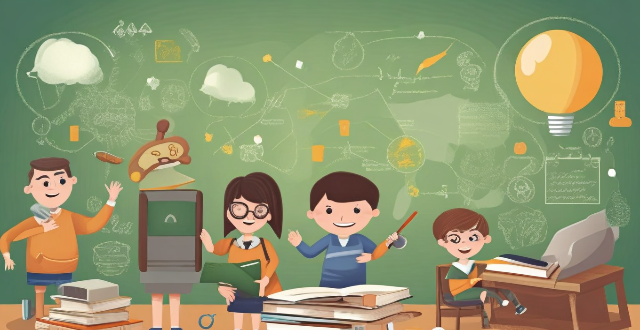
What role do teachers play in promoting educational equity ?
The article discusses the role of teachers in promoting educational equity, which is defined as providing equal opportunities for all students to succeed academically regardless of their background or circumstances. Teachers can contribute to achieving educational equity by creating an inclusive learning environment, adopting personalized learning approaches, collaborating with stakeholders, and advocating for equitable policies and practices. They must ensure that every student has access to quality education and is given the necessary support to achieve their full potential.

What are the benefits of parent-teacher collaboration in education ?
The article discusses the importance of parent-teacher collaboration in education. It mentions that such collaboration can lead to improved student performance, increased student motivation, enhanced parental involvement, improved classroom management, and greater access to resources. Overall, it emphasizes the significance of parents and teachers working together to create a supportive learning environment for students.
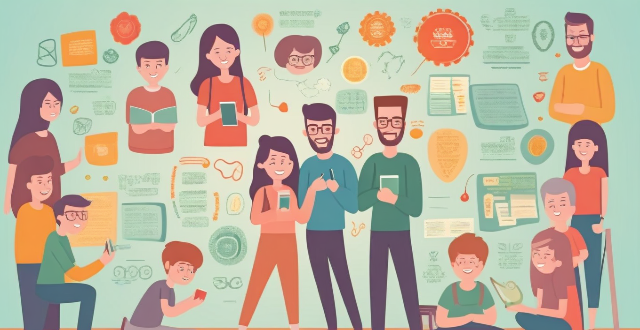
What are some common challenges that arise in parent-teacher collaboration, and how can they be overcome ?
Common challenges in parent-teacher collaboration include lack of communication, time constraints, cultural differences, resistance to change, unclear roles and responsibilities, conflicting priorities, lack of trust, inconsistent messages, limited access to information, and emotional barriers. To overcome these challenges, strategies such as improving communication, addressing time constraints, bridging cultural differences, embracing change, clarifying roles and responsibilities, building trust, facilitating access to information, and addressing emotional barriers can be implemented. By employing these strategies, parents and teachers can work together more effectively to support student success while overcoming common challenges in their collaboration.

What is the importance of building a strong parent-teacher relationship in supporting student learning ?
The Importance of Building a Strong Parent-Teacher Relationship in Supporting Student Learning Building a strong parent-teacher relationship is crucial for supporting student learning. This partnership between parents and teachers can have a significant impact on a child's academic success, social development, and overall well-being. A strong parent-teacher relationship fosters open and effective communication channels, creates a supportive learning environment, promotes shared responsibility for a student's education, and cultivates positive attitudes toward education. By working together, parents and teachers can help students reach their full potential and prepare them for success in all aspects of life.

How does educational equity impact student success ?
Educational equity is crucial for student success. It ensures access to quality education, reduces socioeconomic disparities, and promotes diversity and inclusion. Educational equity positively impacts academic achievement, social and emotional development, career opportunities, and civic engagement. Achieving educational equity requires collective efforts from educators, policymakers, and community members.
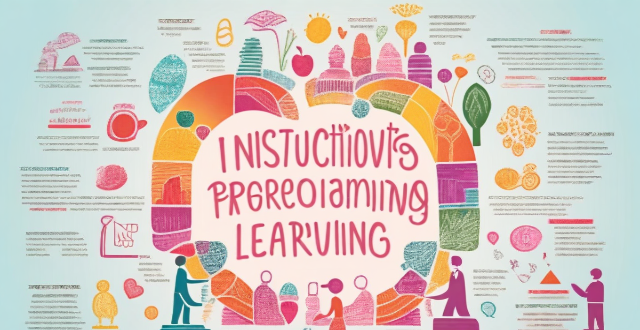
What role do educational institutions play in promoting lifelong learning ?
Educational institutions promote lifelong learning by encouraging a love for learning, providing access to educational resources, offering continuing education opportunities, and fostering collaboration and partnerships.
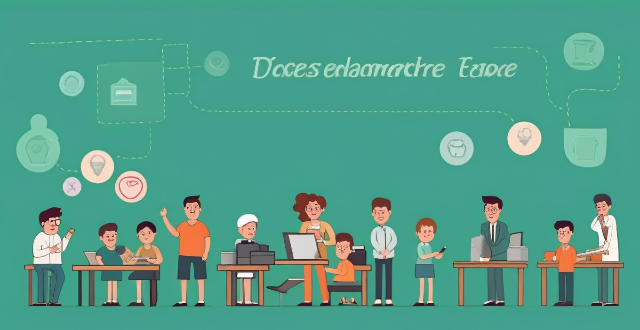
What are the challenges faced by educational game developers in creating games that are both fun and educational ?
The text discusses the main challenges faced by educational game developers, including balancing education and entertainment, meeting educational standards, adapting to different learning styles, and engaging students long-term.

What are the challenges to achieving educational equity ?
Educational equity is a critical issue in modern society, but achieving this goal is not without its challenges. Some of the major obstacles that hinder the progress towards educational equity include limited resources, socioeconomic disparities, systemic racism and discrimination, and lack of parental involvement. It is essential for policymakers, educators, and communities to work together to develop strategies that promote equal access to quality education for all students.

What are the key elements of educational game development ?
Educational game development involves defining learning objectives, understanding the target audience, designing engaging game mechanics and visuals, developing relevant content, implementing assessment and feedback mechanisms, conducting iterative testing, and collaborating with experts in the field. By addressing these key elements, developers can create effective educational games that support learning outcomes and enhance the overall player experience.

How can educational game developers create engaging and interactive games without sacrificing educational content ?
Educational game developers can create engaging and interactive games without sacrificing educational content by focusing on clear objectives, gamification techniques, feedback mechanisms, collaborative features, and customization options. These key aspects can help developers create experiences that are both fun and educational for players of all ages.
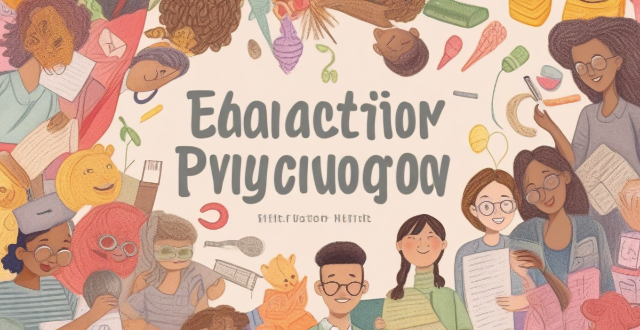
What is educational psychology ?
Educational psychology is a subfield of psychology that focuses on the learning process and its influencing factors. It aims to understand students' learning, thinking, and development over time, as well as how teachers can support their educational needs. Key concepts include learning theories, cognitive development, motivation, classroom management, and assessment and evaluation. Applications of educational psychology include curriculum design, special education, counseling and mental health services, teacher professional development, and research. By applying its principles, educators can create effective teaching strategies, foster positive classroom environments, and improve student outcomes.

What role does technology play in modern home education ?
Technology has revolutionized modern home education by providing enhanced learning opportunities, personalized experiences, and facilitating parent-child collaboration. Online courses, educational apps, virtual reality, adaptive learning software, interactive whiteboards, and gamification are just some of the tools used to create engaging and effective learning environments. Additionally, video conferencing, online communities, and digital portfolios help parents stay connected and involved in their child's education. Technology will continue to play a significant role in shaping home education practices in the future.
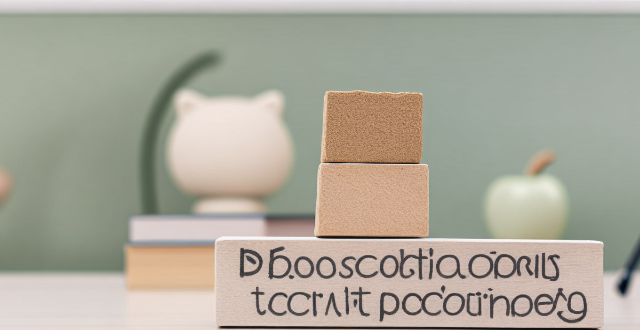
How does educational psychology impact student learning ?
Educational psychology plays a crucial role in understanding and enhancing student learning. It helps educators understand cognitive development, enhance motivation and engagement, promote social-emotional learning, address diverse learning needs, and evaluate teaching strategies and interventions. By incorporating insights from educational psychology into their practice, teachers can create a more effective and supportive learning environment for all students.

How can parents encourage and support their children's academic motivation ?
Academic motivation is a crucial factor in a child's educational journey. Here are some tips on how parents can encourage and support their children's academic motivation: 1. Set goals and expectations by discussing interests and strengths, creating a plan, and providing regular feedback. 2. Create a conducive learning environment by providing a quiet study space, minimizing distractions, and encouraging breaks and physical activity. 3. Offer encouragement and praise by acknowledging efforts and achievements, praising hard work and dedication, and celebrating successes. 4. Be involved in their education by attending parent-teacher conferences, showing interest in their studies, and helping with homework when needed. 5. Model good study habits by demonstrating a positive attitude towards learning, practicing time management and organization skills, and showing perseverance and resilience when faced with challenges.

What are the benefits of participating in parent-child activities together ?
Participating in parent-child activities together offers numerous benefits, including improved communication, stronger emotional connections, physical health benefits, cognitive development, social skills development, and the creation of lifelong memories. By engaging in these activities, families can strengthen their relationships, improve communication, and create lasting memories that will be cherished for years to come.

How does educational equity relate to social justice ?
Educational equity and social justice are interconnected concepts that aim to create a fair and just society. Educational equity involves providing equal opportunities for learning and addressing disparities in resources, funding, and support services between schools or communities. Social justice encompasses policies and practices that ensure everyone has equal rights, opportunities, and access to resources while eliminating discrimination based on various factors. The relationship between educational equity and social justice includes addressing systemic inequalities within the education system, providing access to quality education for all students, promoting diversity and inclusion, and empowering students to become agents of change in their communities. By achieving educational equity, we can work towards creating a more just and equitable society.

How can parents and teachers work together to promote academic achievement and success for all students ?
Parents and teachers play a crucial role in the academic success of students. By working together, they can create an environment that encourages learning, growth, and achievement. Here are some ways parents and teachers can collaborate to promote academic success: 1. Open Communication: Maintaining open and regular communication is essential. Teachers should provide updates on students' progress, challenges, and achievements. Likewise, parents should share any concerns or observations about their child's learning and behavior. 2. Supportive Home Environment: Parents should create a conducive home environment for learning by providing a quiet study space, setting a routine for homework and reading, and encouraging curiosity and exploration. 3. Partnership in Education: Both parents and teachers share the responsibility of educating students. Parents should support what teachers do in the classroom by reinforcing skills at home and ensuring that homework is completed. 4. Encourage Involvement in School Activities: Parents can volunteer at school events or participate in parent-teacher organizations. This not only helps the school but also gives parents insight into the educational process. 5. Promote a Positive Attitude Towards Learning: Celebrate effort and progress rather than just focusing on grades. This encourages a growth mindset and fosters a love for learning.

What programming languages are commonly used in educational game development ?
The text is about educational game development and the programming languages used. It lists some of the most commonly used programming languages in educational game development, including Python, JavaScript, Java, C#, UnityScript (C# variant), and HTML5/CSS3/JavaScript. The pros and cons of each language are discussed, along with examples of games that use them. The conclusion states that by choosing the right language for your project, you can ensure that your game is engaging, educational, and accessible to a wide audience.
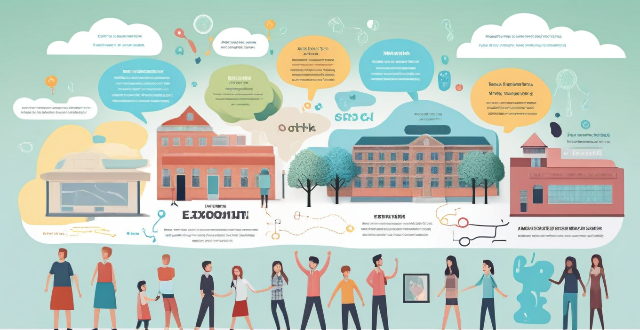
What is educational equity and why is it important ?
Educational equity is the principle that all students, regardless of their background or circumstances, should have access to high-quality educational opportunities. It involves providing equal resources, support, and services to ensure that every student can achieve their full potential. The importance of educational equity lies in promoting social justice, reducing achievement gaps, increasing student motivation, preparing students for future success, and promoting diversity and inclusion. By addressing disparities in education and promoting equal treatment for all students, we can help create a fair and just society where every individual has an equal opportunity to succeed.

What are the benefits of applying educational psychology in curriculum design ?
The application of educational psychology principles in curriculum design can significantly improve student learning outcomes, promote their well-being, support teacher effectiveness, address diversity and inclusion, and align with modern educational goals. This approach enhances cognitive development, motivation, adaptive learning strategies, reduces anxiety, increases self-esteem, develops social skills, informs instructional decisions, encourages professional growth, aids classroom management, integrates cultural sensitivity, addresses special education needs, differentiates instruction, prepares students for future challenges, fosters lifelong learning, and effectively uses technology. Overall, this holistic approach to curriculum design benefits both students and educators, preparing learners for success in the 21st century.

How can I improve my productivity with educational software ?
Educational software can be a powerful tool to enhance your productivity, but it's essential to use it effectively. Here are some tips on how you can improve your productivity with educational software: 1. Set clear goals and objectives before using any educational software. This will help you select the right software that aligns with your needs and ensure that you stay focused on what you want to achieve. 2. Choose the right software for your specific needs. Look for software that is user-friendly, engaging, and relevant to your learning goals. Consider factors like cost, accessibility, and compatibility with your devices. 3. Use the software regularly. Consistency is key when it comes to improving your productivity with educational software. Make a schedule for when you will use the software and stick to it. Even if you can only devote a few minutes each day, regular use will help reinforce your learning and keep you on track. 4. Take advantage of interactive features like quizzes, games, and simulations. These can be great tools for reinforcing your learning and making the process more engaging. Be sure to take advantage of these features whenever possible. 5. Track your progress. Keeping track of your progress is an excellent way to stay motivated and see how far you've come. Many educational software programs have built-in tracking features that allow you to monitor your progress over time. If your software doesn't have this feature, consider using a separate tool like a spreadsheet or journal to track your progress manually.

What are the key principles of educational psychology ?
Educational psychology focuses on understanding learning processes and applying this knowledge to improve educational practices. Key principles include developmental appropriateness, various learning theories, student-centered education, motivation and engagement strategies, effective assessment and feedback techniques, acknowledgment of social influences on learning, understanding cognitive development and information processing, and fostering emotional and social development. These principles aim to enhance teaching methods and create optimal learning conditions for students of all ages.

What are the latest trends in educational technology innovation ?
The text describes the latest trends in educational technology innovation, including personalized learning, artificial intelligence (AI), augmented reality (AR) and virtual reality (VR), mobile learning, and gamification. Personalized learning tailors instruction to meet individual student needs, while AI analyzes data from student performance to provide personalized recommendations for improvement. AR and VR create immersive learning experiences through simulations and virtual field trips. Mobile learning uses mobile devices to deliver educational content and facilitate communication between students and teachers. Gamification incorporates game design elements into non-game contexts, such as education, to make learning more fun and engaging. The benefits of these trends include improved student engagement and motivation, increased retention and understanding of material, better preparation for future careers and lifelong learning, and the development of important skills such as critical thinking, problem-solving, and collaboration.

What is the role of educational psychology in special education ?
The text discusses the significant role that educational psychology plays in special education. It highlights various areas where insights from educational psychology contribute to understanding and supporting students with disabilities or special needs, including identification and assessment, instructional planning, behavior management, learning supports, transition planning, and family involvement. The summary underscores that by applying principles of educational psychology, educators can design more effective strategies, foster inclusive environments, and promote the overall well-being and academic success of all students.

What are the benefits of using educational robots in schools ?
Educational robots offer enhanced learning, improved student outcomes, reduced teacher workload, promotion of STEM education, and preparation for future job demands. They provide interactive, customized learning experiences that engage students and develop essential 21st-century skills. By integrating technology into STEM education, educational robots make it more relevant and appealing to students. They also help teachers manage special needs students and automate repetitive tasks, freeing up time for more complex teaching aspects. Incorporating educational robots into school curricula prepares students for a rapidly advancing technological future and the job market's demands for 21st-century skills.

How can educational games be designed to effectively enhance learning ?
Designing educational games that effectively enhance learning involves a combination of educational theory, game design principles, and an understanding of the target audience. To create engaging and effective educational games, it is crucial to identify learning objectives, understand the target audience, incorporate educational theory, use engaging game mechanics, incorporate multimedia elements, provide opportunities for practice and repetition, include assessment and feedback mechanisms, foster collaboration and social interaction, and iterate and refine the game. By following these guidelines, you can design educational games that effectively enhance learning by engaging players, providing meaningful experiences, and fostering long-term retention of knowledge and skills.